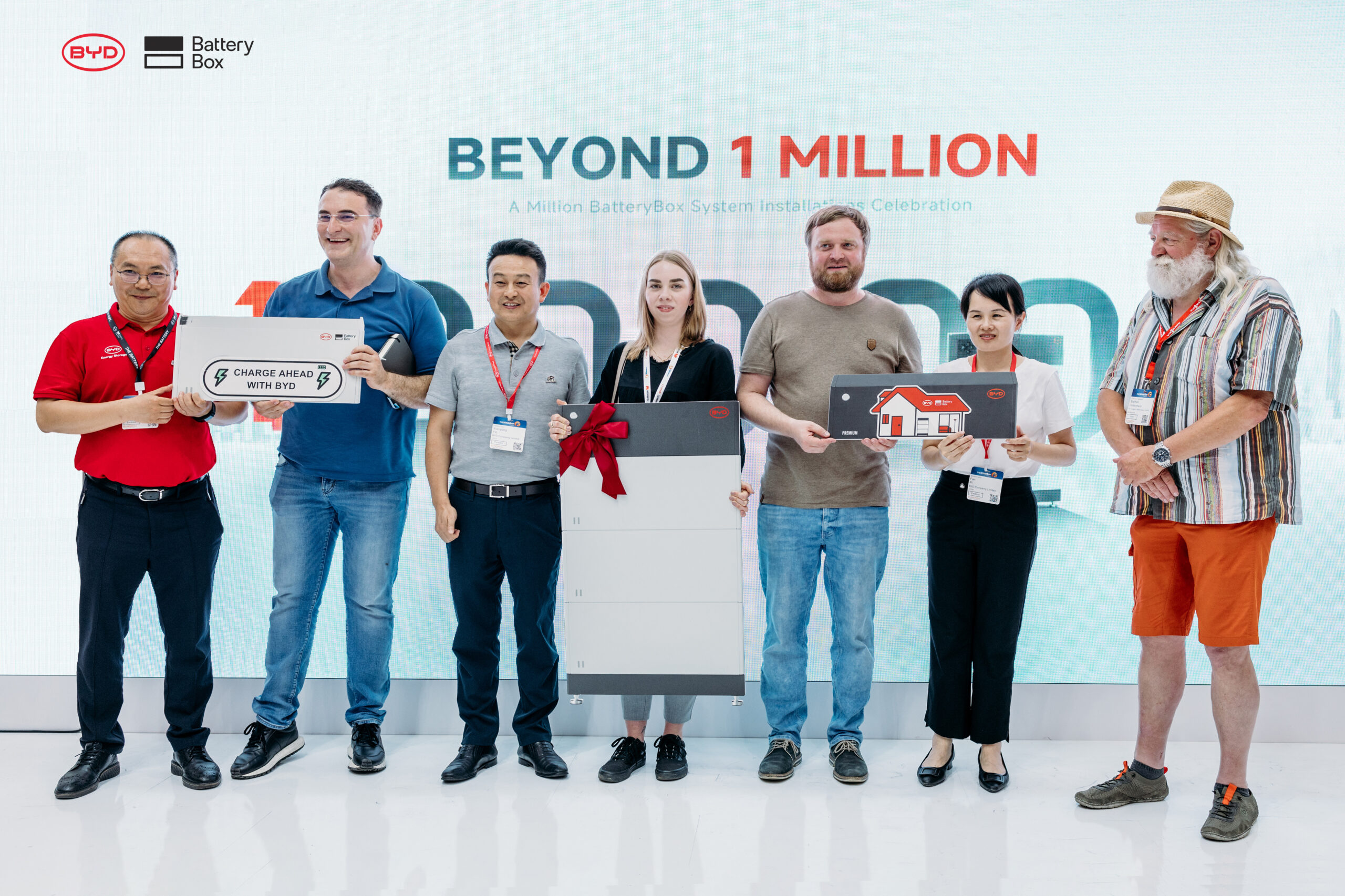Sign up for daily news updates from CleanTechnica on email. Or follow us on Google News!
The BYD brand is starting to get a lot more famous around the world for its electric vehicles, such as the BYD Seal, Seagull, Dolphin, and Atto 3 full battery electric vehicle. BYD is also well known for several other models that include a range of plug-in hybrids. However, BYD is not just a car company. It is also a leading supplier of batteries for electric vehicles (such as some variants of the Tesla Model Y) as well as a bouquet of stationary storage systems for residential, commercial, industrial, and utility-scale applications. BYD is active in several other sectors as well.
On the utility-scale side of things, BYD is starting to ramp up its activities at home and abroad. The Kenhart power plant in the Northern Cape Province of South Africa, with a total capacity of 1.14GWh, invested and built by Norway’s Scatec, is an example of one of these large systems that is now operational. We have previously covered it here. Another huge plant involves a partnership with Spain’s Grenergy to provide energy storage systems for its Oasis de Atacama energy storage project in Chile, with a total capacity of 1.1 GWh.
In China, BYD Energy Storage has become a frontrunner in over one year, growing an incredible 10X as BYD’s domestic shipments reached about 10 GWh in 2023 compared to less than 1GWh in 2022. A 10X jump in 1 year is quite remarkable.
BYD recently celebrated another huge milestone, this time in the residential and small commercial sector. Many people would be familiar with products such as the Tesla Powerwall, which is now in its third generation. BYD also has its home storage unit called the BatteryBox. Launched about a decade ago in 2015, BYD says the BYD BatteryBox series has become a leading residential energy storage solution worldwide, and now has over one million installations!
Over the years, the BatteryBox has come in assorted sizes, built on a modular system. One of the latest versions of the BYD Battery Box is the LV5.0 version, which is based on 5kWh modules. BYD says the LV5.0 battery is a lithium-iron-phosphate (LFP) battery module for use with an external inverter. The BYD Battery Box is compatible with several inverters, such as the Victron, Deye, SMA, Phocos, Solis, and Goodwe.
The communication with the inverter is established through the BMS (Battery Management System). Each battery module has a separate BMS. The energy storage system sizes can be extended from 5 kWh to 160 kWh. BYD adds that the LV5.0 is a home energy solution that includes Cell-To-Pack (CTP) design — the BYD Blade Battery perhaps! BYD say this modular approach has the advantages of flexibility, with the LFP cells proving ultra-safety.
Here is a summary of the specifications:
- Usable Energy: 5 kWh
- Power: 3.58 kW
- Dimensions: (H/W/D)195 x 595 x 255 mm
- Weight: 42 kg
- Installation Mode: Floor installation
- Applications: On Grid / On Grid + Backup / Off Grid
The full BYD BatteryBox Premium portfolio includes the high-voltage models HVS/HVM and the low-voltage models LVL/LVS. BYD has also introduced a new battery control unit (BCU) for the HVM and HVS series and says this will simplify installation by eliminating the need to remove covers for cable connections. A new BatteryMax Lite designed for commercial and industrial applications, offering scalable solutions from 30 kWh to 90 kWh, and up to 5.7 6MWh with parallel connections, was also launched recently. Compatible with inverters from brands like SMA and Goodwe, BatteryMax Lite will be available for pre-order from August, with shipments starting in late summer.
With prices of battery cells going down significantly in recent times, we could start to see some accelerated growth in the stationary storage sector. Having large players such as BYD active in this ecosystem that have a presence across several continents either directly or through partners will certainly help catalyse adoption of energy storage systems and assist in the integration of variable renewables.
Image courtesy of BYD
Have a tip for CleanTechnica? Want to advertise? Want to suggest a guest for our CleanTech Talk podcast? Contact us here.
Latest CleanTechnica.TV Videos
CleanTechnica uses affiliate links. See our policy here.






